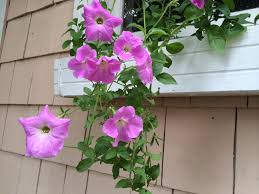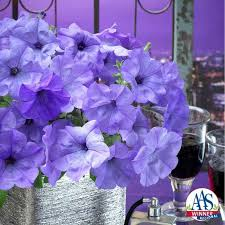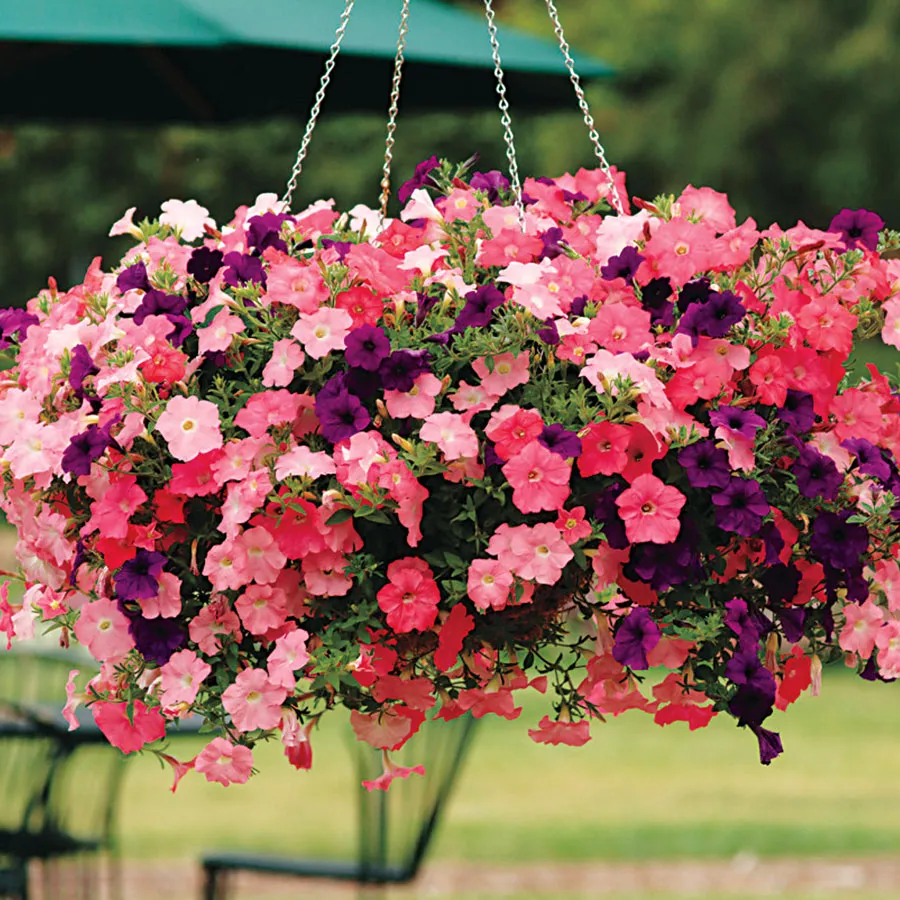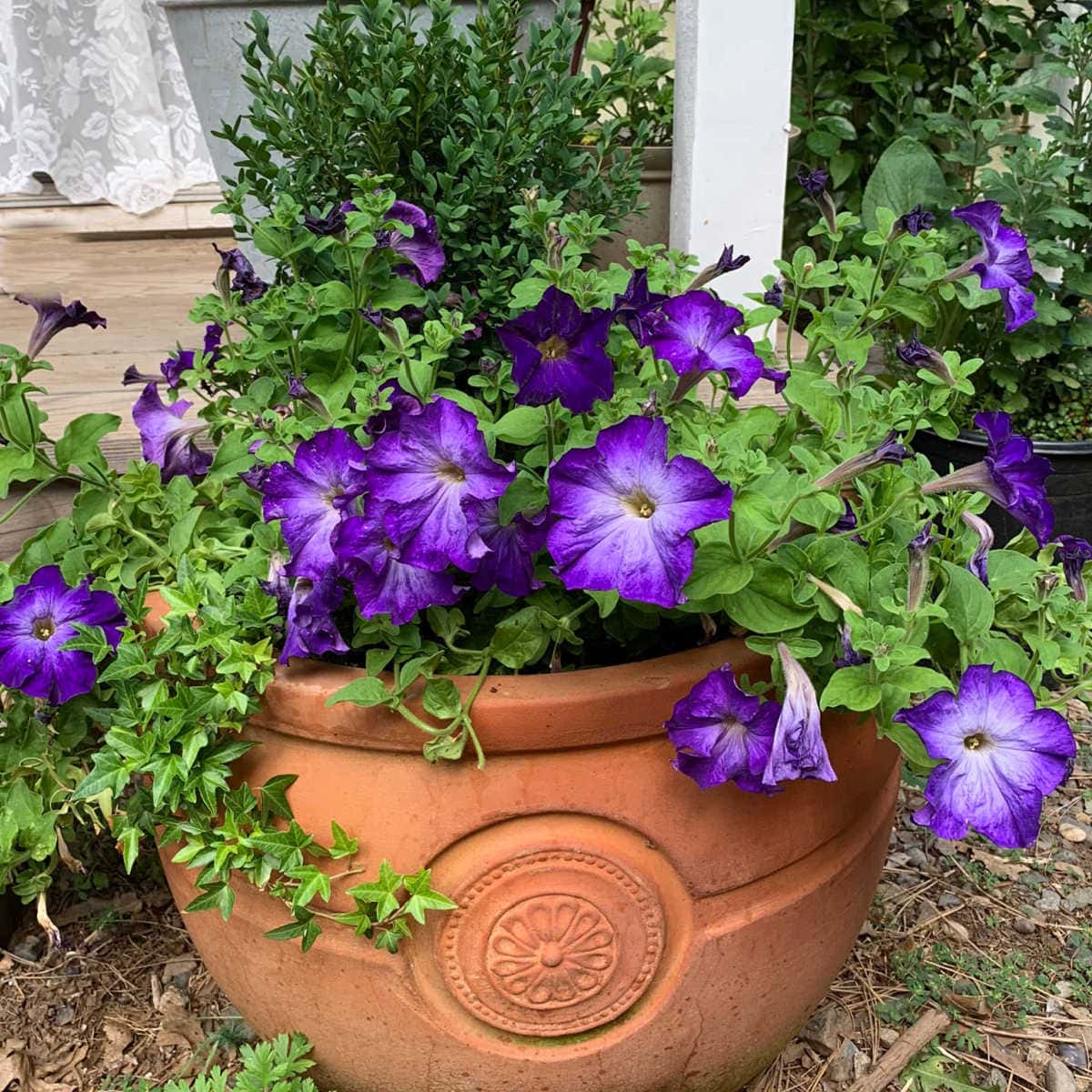Petunias are renowned for their long bloom period, vibrant colors, and resilience, making them the most popular bedding plants worldwide. While many gardeners love buying petunias from garden centers in spring, growing them from seed can be a rewarding and cost-effective alternative, especially for more uncommon varieties.
Petunias are easy to germinate from seed, but they require a bit of planning and patience. Since these plants take about 10 weeks from sowing to transplanting, it’s important to start the seeds early, ideally indoors under grow lights. A simple fluorescent light fixture, the same one used for starting tomatoes, works well for growing petunia seedlings.
Heirloom Petunias
Modern petunias are descended from species native to South America, introduced to Europe in the 1820s. These wild species were extensively hybridized to create the diverse and colorful petunias we know today. Among the most beloved are two heirloom varieties that have stood the test of time:
- ‘Old Fashioned Vining’ Petunia: This variety is cold- and heat-tolerant and continues to bloom well into fall. It grows about 24 inches tall and readily reseeds itself. You might find it growing in old garden spaces, like a churchyard where it has thrived for decades. The plant’s long vines and generous seed production make it perfect for naturalizing in gardens.
- ‘Balcony’ Petunia: A century-old variety, ‘Balcony’ grows upright initially but becomes more relaxed and vining as it matures, offering a soft, cascading effect perfect for containers or hanging baskets.

Fragrant Petunias for Pots
While many petunias are chosen for their bold colors, some varieties also offer delightful fragrance, especially in the evening. Petunias release their sweet scent at dusk to attract moths, their primary pollinators. In South American cultures, the scent was even believed to ward off evil spirits.
One of the best fragrant varieties is ‘Evening Scentsation’, a lilac-blue petunia that is highly fragrant in the late afternoon and evening. This variety is ideal for containers placed at nose level, like on patios or near doorways. If you’re looking for other fragrant options, visiting a garden center at dusk can help you identify other varieties with pleasing scents. Petunias have strong circadian rhythms, so they’re often scentless in the morning.

Premium Petunias
For gardeners who want something extra special, ‘Wave’ petunias are a popular choice. These plants form dense, spreading carpets of color and are well-suited for hanging baskets and large containers. While they can be pricey, varieties like ‘Silver Tidal Wave’—an All-America Selections winner—are well worth the investment. This variety not only adds a touch of elegance with its silver hues but also emits a subtle evening fragrance.
In warmer climates, you can extend the life of premium petunias by cutting them back in the fall, trimming them to about 6 inches. With proper care, including protecting them from freezing temperatures, these plants can be kept in semi-dormancy over winter and revived in spring. Additionally, you can propagate them by rooting 4-inch cuttings in seed-starting mix.

Growing Petunias from Seed
Petunia seeds are tiny but highly viable. Some premium varieties come in pelleted form, which makes handling easier. To start petunias from seed, gently press the seeds into moist seed-starting mix, then cover them lightly with more mix. Keep the seed tray warm and moist, and you should see germination within a week.
Once the seedlings sprout, treat them like you would tomatoes—providing plenty of light and room to grow. Transplant them into larger pots as they outgrow their initial containers. Hardening off is crucial: gradually acclimate the seedlings to outdoor conditions before planting them in the garden after the last frost.
To keep your petunias flourishing throughout the season, consider trimming them back halfway in midsummer. This will encourage fresh growth and enhance flowering. A boost of high-nitrogen liquid fertilizer will help rejuvenate the plants.
By starting petunias from seed, you not only enjoy the process of nurturing them but also open up a world of beautiful, fragrant, and diverse varieties to enhance your garden.
